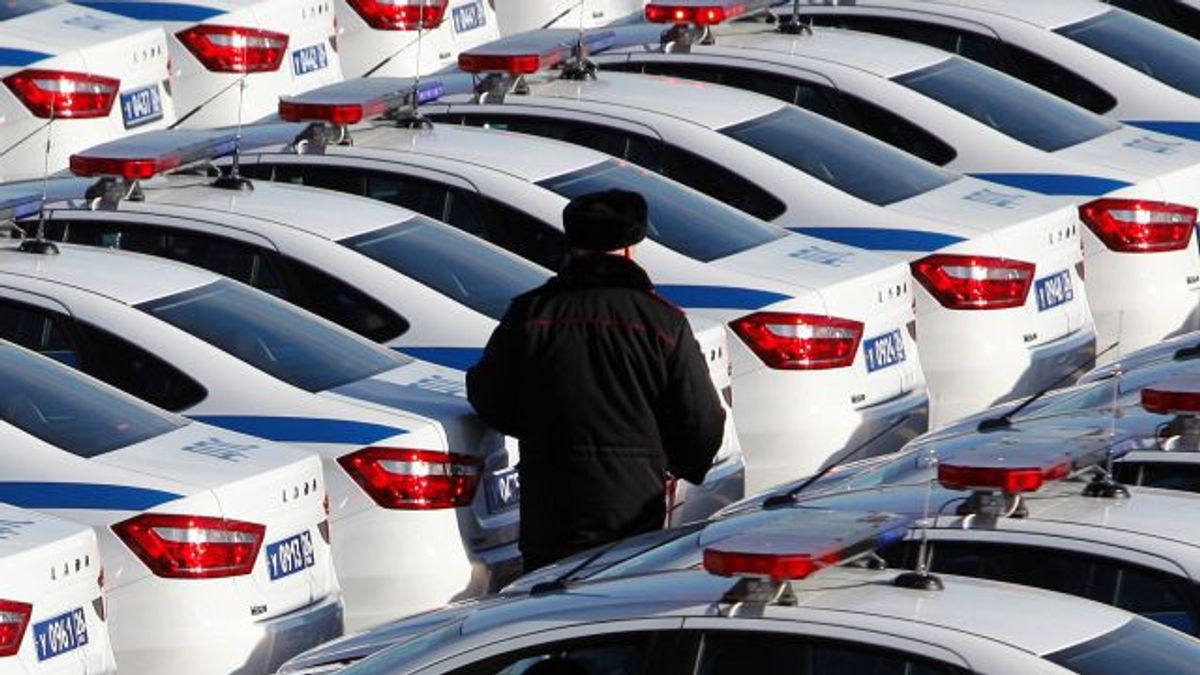JAKARYA - Several companies, including automakers Volkswagen and Renault and tire maker Nokian Tires, are outlining plans to close or shift manufacturing operations following Russia's invasion of Ukraine.
The United States announced sweeping export restrictions on Russia, hitting its access to global exports of goods ranging from commercial electronics and computers to semiconductors and aircraft parts.
This could lead the company to change manufacturing plans or seek alternative supply lines.
The invasion was a factor in consulting firms JD Power and LMC Automotive slashing their 2022 global new car sales outlook by 400,000 vehicles to 85.8 million units.
The auto industry has been dealing with tight vehicle supplies due to a global semiconductor shortage.
"Already tight vehicle supplies and high prices worldwide will come under additional pressure based on the severity and duration of the conflict in Ukraine," said Jeff Schuster, president of global vehicle forecasts at LMC.
According to him, rising oil and aluminum prices are likely to affect consumers' willingness and ability to buy vehicles, even if inventories increase.
"We have made significant downgrades on the Ukraine and Russia forecasts due to the escalating conflict between the two and the impact associated with sanctions against Russia," he added.
The conflict could raise oil prices above $100 a barrel, which would add to inflationary pressures on European and American consumers, said Wells Fargo analyst Colin Langan in a research note.
While consumers have been willing to pay above-label prices for new vehicles, sustainably higher gas prices could have an impact on the long-term recovery, he said.
Germany's Volkswagen said it would halt production for several days at two German plants after delays in getting parts made in Ukraine.
France's Renault said it would suspend some operations at its car assembly plant in Russia next week due to a logistics bottleneck caused by a shortage of parts.
It did not specify whether its supply chain had been hit by conflict, but a spokesman said the move was a consequence of the fortified border between Russia and neighboring countries, through which trucks transporting spare parts traverse.
The automaker is one of the Western companies most exposed to Russia, where it generates 8 percent of its core revenue, according to Citibank.
"The disruption is mainly due to tighter border controls in transit countries and the forced need to change a number of existing logistics routes," said the company's Russian unit, without naming any countries.
Russian automaker Avtovaz, controlled by Renault, also said it would suspend several assembly lines at a factory in central Russia for one day, Monday, due to a persistent global shortage of electronic components. Avtovaz also did not mention the invasion in its statement.
Finnish tire maker Nokian said it was shifting production of several key product lines from Russia to Finland and the United States to prepare for possible further sanctions following the invasion.
The English, Chinese, Japanese, Arabic, and French versions are automatically generated by the AI. So there may still be inaccuracies in translating, please always see Indonesian as our main language. (system supported by DigitalSiber.id)












